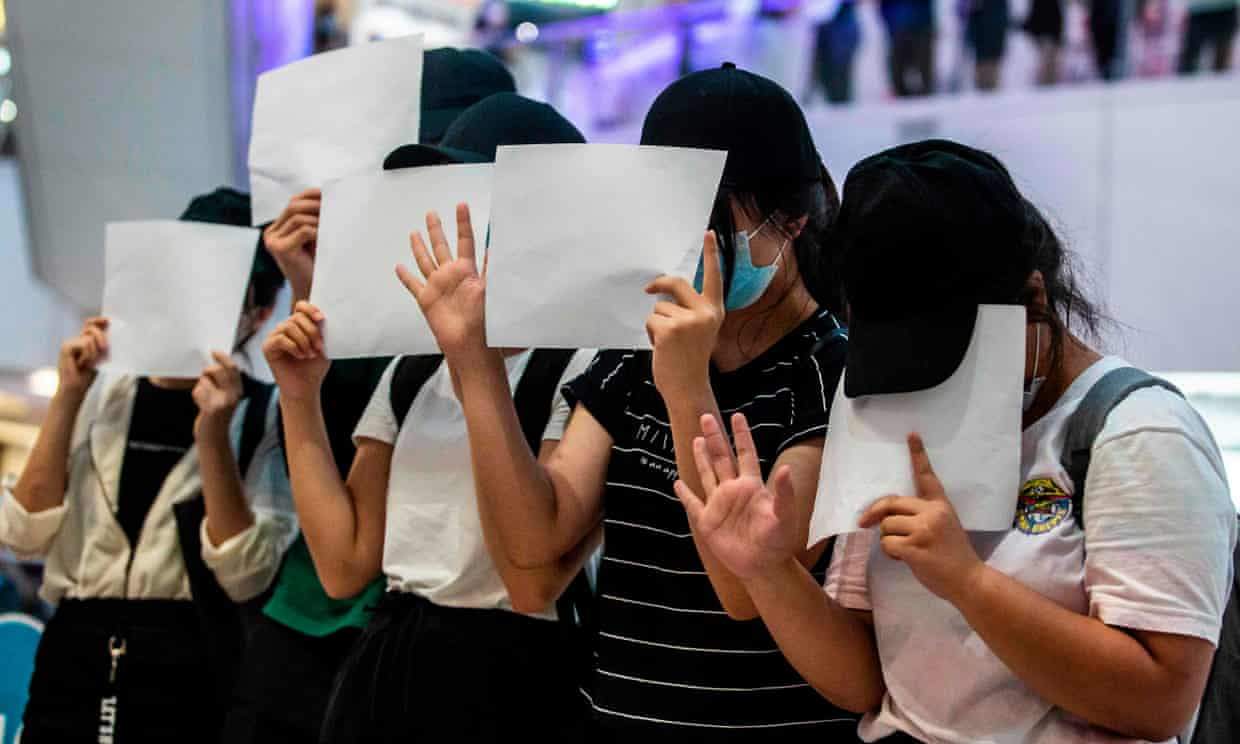You could end up in jail, US warns its citizens in China

The US has warned its citizens in China to “exercise increased caution” because of a heightened risk of arbitrary detention and exit bans that prevent foreign citizens leaving the country.
Citizens could face prolonged spells in jail, without US consular support, or access to details of any alleged crime, the state department said. The warning, sent in an email to US citizens in China, comes after Beijing passed a national security law for Hong Kong, with the legislation drafted to cover people “from outside [Hong Kong]”, including non-residents.
Lawyers and activists have warned China could use this assertion of extra-territorial jurisdiction – the legislation could theoretically be used to bring charges against any person from any country – to mute critics around the world. The state department did not specify what prompted the alert, but it did warn that criticism of the Chinese government, even in private communications, could be used against foreign citizens.
“Security personnel may detain and/or deport US citizens for sending private electronic messages critical of the Chinese government,” it added, without citing specific examples.
The email warned that US citizens might face detention “without access to US consular services or information about their alleged crime,” along with “prolonged interrogations and extended detention” for reasons related to state security.
The security alert comes at a time of escalating tensions between the two superpowers over everything from trade and the Covid-19 pandemic, to China’s handling of Hong Kong, and treatment of minorities in far western Xinjiang region, where there is a vast network of internment camps. An escalating round of tit-for-tat measures has also seen the US and China restrict the operations of journalists from the other country inside their borders. Last Wednesday, Australia issued a similar warning against the risk of arbitrary detention in China, which Beijing dismissed as “completely ridiculous and disinformation”.
China has been accused of hostage diplomacy over the arrest of two Canadians, who were recently charged with espionage after more than 18 months in jail. Michael Kovrig, a former diplomat, and Michael Spavor, a businessman, were detained in 2018, days after Canadian authorities arrested the chief financial officer of tech firm Huawei, Meng Wanzhou, on a US extradition warrant.
Prime minister Justin Trudeau said China had “directly linked the case of the two Michaels to the judicial proceedings against Miss Meng”, and this was “extremely disappointing”. He repeatedly pressed China to release the men. China has always rejected suggestions any of its criminal proceedings against foreigners are politically motivated.
Photo: Protesters in Hong Kong on 6 July respond to a new national security law that bans political views, slogans and signs advocating independence or liberation. Photograph: Isaac Lawrence/AFP/Getty Images




